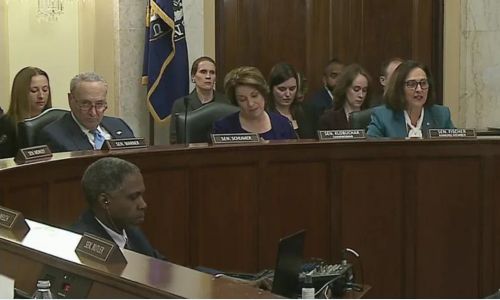Washington D.C. – In response to the Senate Rules Committee’s recent party-line vote to advance a resolution altering Senate rules for the consideration of certain Senate-confirmable nominees during the 118th Congress, U.S. Senator Katie Britt (R-Ala.) expressed her reservations and articulated concerns about the potential impact on the Senate’s traditional role.
Senator Britt, a member of the Senate Rules Committee, issued a statement condemning the decision made by her Democratic colleagues. She characterized the move as an “ill-advised erosion” of the Senate’s institutional integrity and its essential Constitutional role in advising and providing consent.
In her statement, Senator Britt emphasized the potential dangers of fundamentally changing the Senate’s rules, even if only temporarily. She argued that such actions set a perilous precedent that could undermine the established system of checks and balances crucial to the nation’s governance.
“The Senate rules are designed to ensure the minority party has a true voice—not to whimsically bend to benefit Democrats’ wishes at any given moment in time,” Senator Britt remarked. She underscored the importance of applying rules uniformly, irrespective of which party holds the majority, to maintain the integrity of the Senate’s procedural framework.
Senator Britt also critiqued the perceived inconsistency in the application of rules based on party dynamics, stating, “When Democrats are in the majority, they’re happy to throw the minority party’s rights down the drain to achieve their short-term partisan agenda; yet, when Democrats are in the minority, they would never cede those same rights.”
Expressing concern that the proposed ‘temporary’ rule change could have lasting consequences, Senator Britt concluded by warning that such alterations might inflict lasting damage on the Senate as an institution.
The decision by the Senate Rules Committee is likely to spark further debate on Capitol Hill, with senators on both sides of the aisle scrutinizing the potential ramifications of the proposed rule changes.














